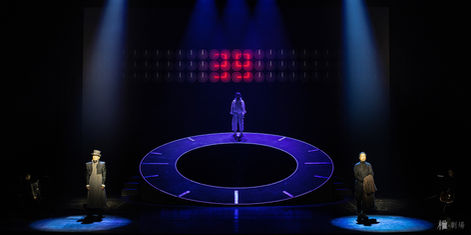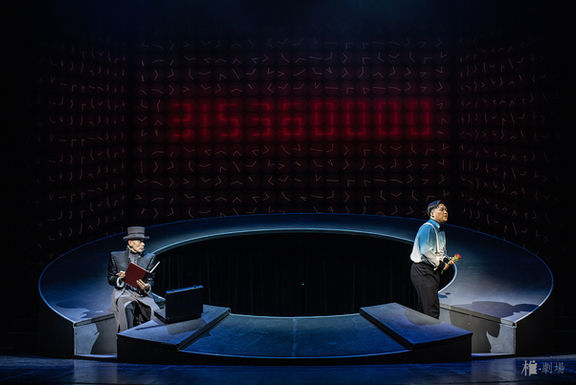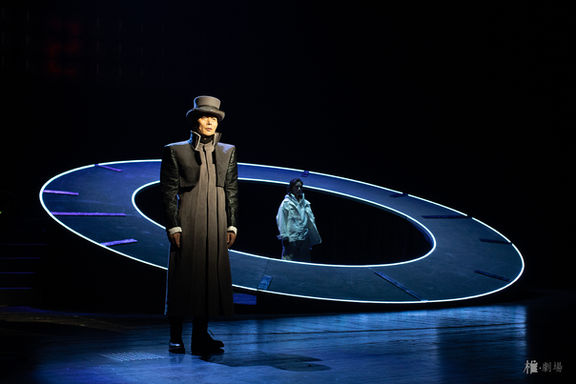

Stage Design by Christl Wein (Germany)
Lighting Design by Tan Hua (China)
Sound Design by Sebastian Maier (Germany)
Choreography by Katja Wachter (Germany)
Second Version Perform by Ge You, Wan Qian, Niu Piao, Jia Jinghui, Haiyang, Cui Zongren, Li Wenqiang, Wang Chuan, Luan Xiaojun, Wang Yu
Accordion by Wang Jingyang
Cello by Kuang Rui
First Version Perform by Wan Qian, Jia Jinghui, Xue Guanglei, Zhang Zhiyong, Haiyang, Cui Zongren, Li Wenqiang, Wang Chuan, Luan Xiaojun, Wang Yu
Accordion by Wang Xue
Cello by Zhang Yu
MOMO
A reality for all, a fairy tale for adults.
About the play
There is a girl in the city.
No one knows her age, her origins, where she comes from, or where she wants to go.
She lives alone in an abandoned amphitheatre. People unconsciously want to go to her, people unconsciously pour their hearts out to her. Soundless music comes from the stars, and problems and strife dissipate into thin air. Momo keeps silent, Momo listening.
A group of men appears in the metropolis.
When they arrive, the air surrounding them freezes. And long after they’ve left, you will not remember that they once exist. Grey silhouettes are everywhere, their time merging into the floating grey above the sky. In the glittering cigar flame, they are watching you, they drench into you.
A girl called Momo, and a group of time-thieves under the command of the Grey Boss wage a battle of time between seconds and minutes.
Is life a matter of survival or a matter of living? Who will define it? The flower of time is blooming in everyone's heart. And yet, are you still its master?
About the production
Written by one of the most acknowledged contemporary German author Michael Ende, Mo Mo appealed to audience of all genders and ages upon its publishing in 1973. Within one year, it won the Prize for German Adolescent Literature. The work has now been translated into around 40 different languages and reached sales of more than 7 million copies.
MoMo employs a poetic form to reflect on the meaning of “time”: We spend too little time on ourselves and the lives of other human beings. Yet at the same time, the rushing pace of everyday life steals too much from our sense of “humanity” and the values we uphold. In the German language, life and living shares the same word: Leben. Michael Ende writes in his book: time is life, and life lies in the heart.” Another possible translation could be: “time is living, and living lies in the heart.”













